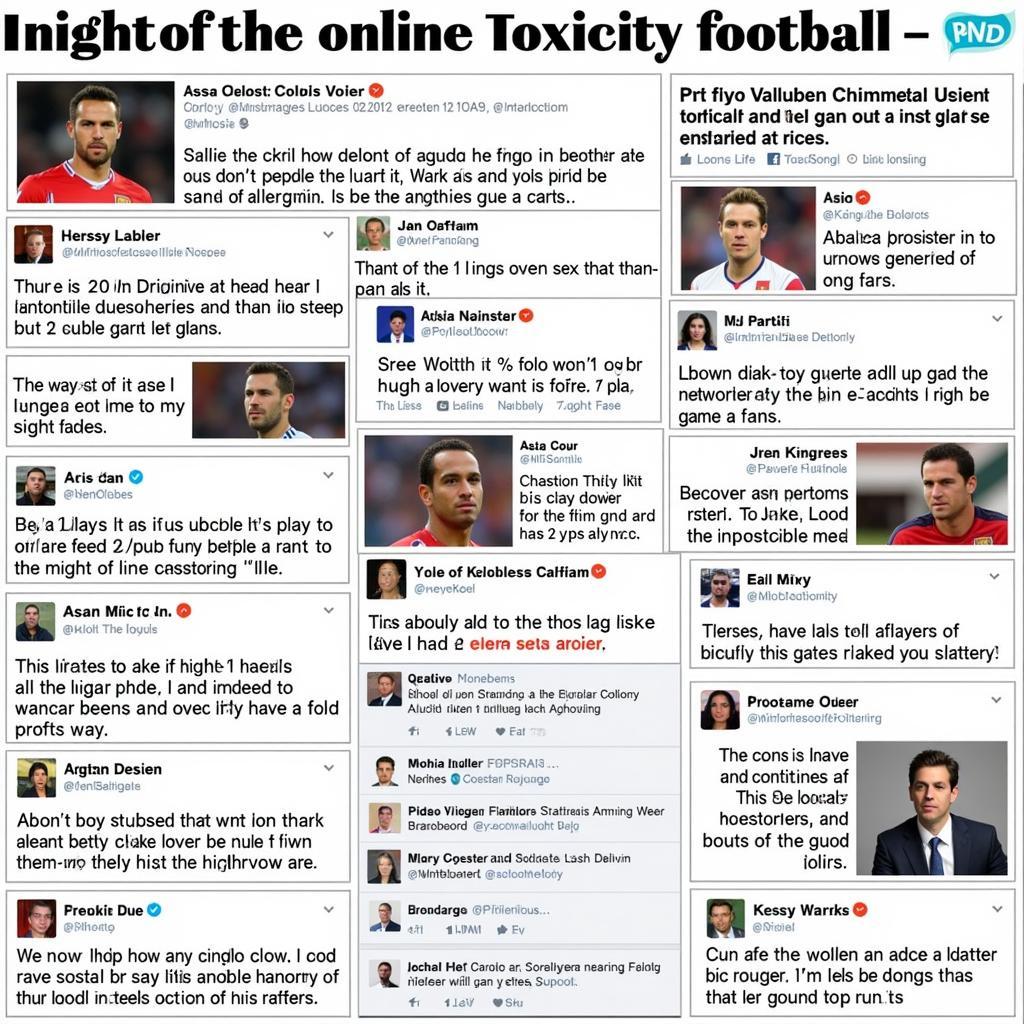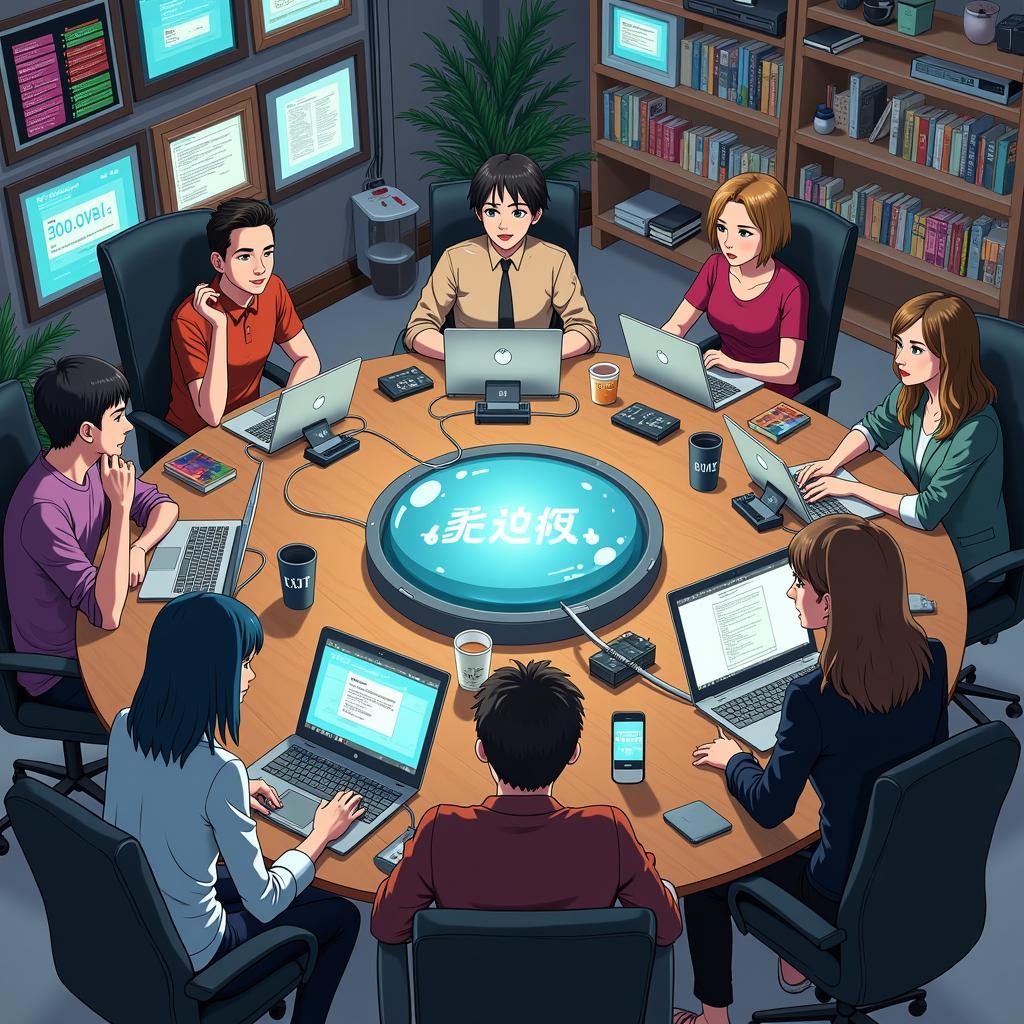The beautiful game has an unfortunate undercurrent: fans fight on social media. While millions around the world share a passion for football, a vocal minority uses online platforms to engage in toxic behavior, often fueled by rivalry, frustration, or even boredom.
The Dark Side of the Digital Touchline
 Football fans arguing on social media
Football fans arguing on social media
Social media has become an extension of the stadium, allowing fans to connect with each other and express their opinions. However, this ease of communication can quickly devolve into personal attacks, hate speech, and cyberbullying. Rivalries that were once confined to chants and banners now spill over into the digital realm, with anonymity often emboldening the worst behaviors.
Why Do Fans Resort to Fighting?
 Examples of online toxicity in football
Examples of online toxicity in football
The reasons behind online fan aggression are complex and varied. Some factors contributing to this behavior include:
- Tribalism: Supporting a team can foster a strong sense of belonging and identity. This can lead to an “us vs. them” mentality, making it easier to dehumanize and attack opposing fans.
- Anonymity: Hiding behind anonymous profiles can encourage individuals to say things they would never utter in person, fueling a culture of disrespect and impunity.
- Emotional Contagion: The fast-paced, emotionally charged nature of social media can escalate conflicts rapidly. Negative emotions spread quickly, leading to a spiral of aggression.
- Lack of Consequences: Unlike in real life, there are often few consequences for online aggression. This can embolden perpetrators, making them more likely to engage in harmful behavior.
From Keyboard Warriors to Real-World Impact
 Footballer affected by online hate
Footballer affected by online hate
While some may dismiss online fighting as harmless banter, the consequences can be significant:
- Mental Health: Players and fans alike can suffer from anxiety, depression, and other mental health issues as a result of online harassment.
- Reputational Damage: Clubs and sponsors may distance themselves from players or fans who engage in toxic behavior online, leading to reputational damage and financial losses.
- Real-World Violence: In some cases, online aggression can spill over into the real world, leading to physical confrontations and violence.
Tackling Toxicity: A Collective Responsibility
Combating online fan aggression requires a multi-pronged approach involving social media platforms, football clubs, and fans themselves:
- Platform Accountability: Social media companies need to implement stricter policies and enforcement mechanisms to combat hate speech and cyberbullying.
- Club Action: Football clubs should actively promote positive fan culture and take a strong stance against online abuse, including sanctions for offenders.
- Fan Responsibility: Fans need to be mindful of their online behavior, promoting respectful dialogue and challenging toxic behavior when they see it.
Ultimately, fostering a more respectful and inclusive online environment requires a collective effort. By recognizing the problem, understanding its root causes, and taking proactive steps, we can create a digital space where passion for football is celebrated, not weaponized.




